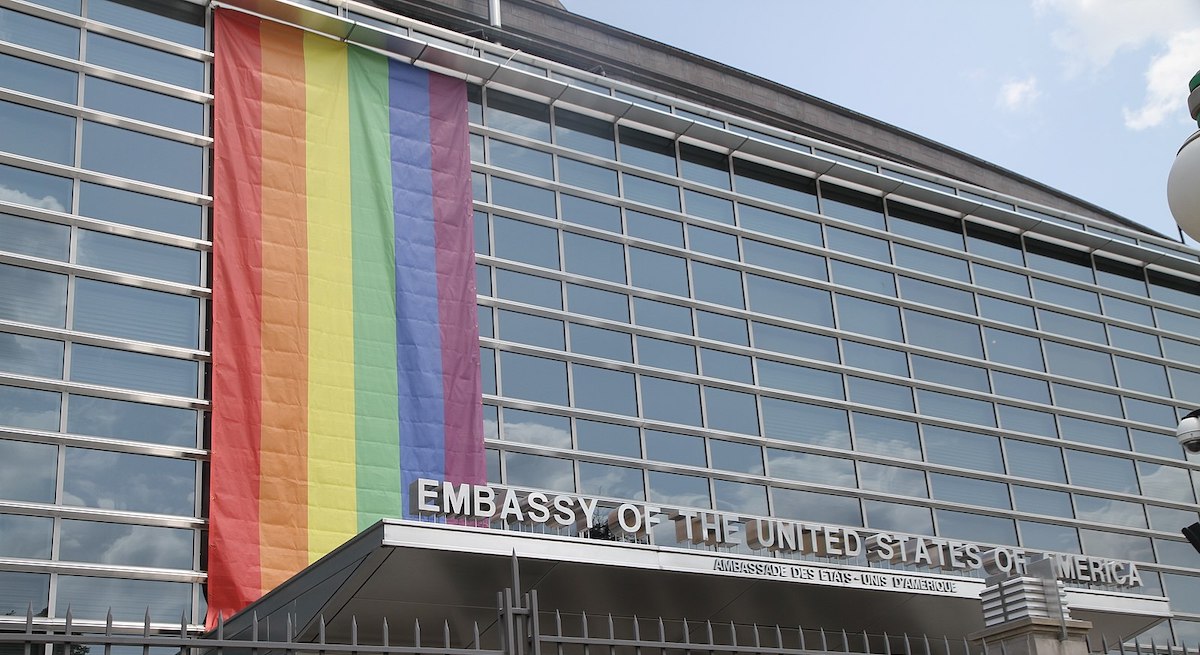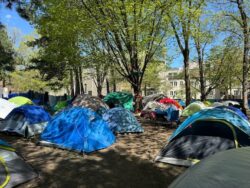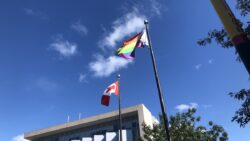Some 2SLGBTQ+ Canadians are rethinking their travel plans after the federal government advised caution when going to the United States.
The government advisory, says, “some states have enacted laws and policies that may affect 2SLGBTQI+ persons. Check relevant state and local laws.”
The warning followed passage of laws in many parts of the U.S. that affect 2SLGBTQ+ rights.
In May, for instance, Florida’s House of Representatives passed HB 1069, which removed 2SLGBTQ+ content from sex education classes and allowed any community member to object to any book in any school library if they found it inappropriate because of “sexual content.” The bill was condemned by many, including the American Civil Liberties Union.
In another example, the Montana House of Representatives passed HB 303, which allows health-care providers to object to providing care based on “conscience,” including gender-affirming health care or abortion. The bill was condemned by the LGBTQ+ civil rights organization Human Rights Campaign.
Many 2SLGBTQ+ Canadians did not find the federal government’s warning surprising.
Juno Caskey, an engineering student at Carleton University and dual Canadian-American citizen who did some schooling in the U.S., recalled feeling less welcome in the U.S.
“I remember hearing stories from the only openly gay guy that I knew … about how he had slurs yelled at him by other high schoolers when he walked home, and … in high school in the States, I would hear gay used as an insult.”
Aanya Baindur, a second-year commerce student at Carleton University, visited the U.S. before coming out as transgender.
“I felt a lot of fear and had to be extremely cautious, especially in the American South. While there may not have been overt hostility, there was a pervasive sense of non-acceptance, which made me extra vigilant, perhaps more than needed,” Baindur said, “It was much easier to be my true self in states that were more LGBTQ+ friendly.”
While Caskey can’t completely avoid travelling to the U.S., she said she will be more cautious when she does return. Baindur said she would avoid visiting less progressive U.S. states if possible.
While all states, provinces and territories must abide by certain federal laws, each has it’s own unique legislation. While some regions of the U.S. have specific provisions preventing discrimination against 2SLGBTQ+ individuals, many do not.
The American Civil Liberties Union, which tracks discriminatory laws, has noted 496 different anti-2SLGBTQ+ bills proposed or passed during the 2023 legislative session.
Baindur supported the travel advisory, and said the Canadian government should be commended.
“The government has a duty to protect its citizens and this extends to its 2SLGBTQ+ citizens. And given the current level of discrimination and hatred in the U.S., we deserve honesty from our government, even if it does mean souring our relationship with one of our biggest allies,” said Baindur.
“The safety of our citizens should be prioritized over political considerations.”
Aaron Ettinger, an associate professor at Carleton University with a specialization in U.S. foreign policy and international relations, suggested the travel advisory won't hurt Canada’s relationship with its close ally to the south.
“You get to rebuke diplomatically without causing much of a fuss. It’s the right thing to do, protect and advise Canadian citizens of LGBTQ identity, and so ultimately it’s the right thing with little consequence, but also probably little effect.”
“The temperature which all of this stuff has been cranked up to is the product of a lot of things all at once. Most notably it is the kind of culture war discourses that have been ramped up with all sorts of panic over books in libraries and drag shows.”
Ettinger supports the advisory. “It’s a good thing, but it’s a small good thing. There is value in Canada expressing its concern or rebuking some of the political doings and transpirings in the U.S. This is a fairly low-impact way of expressing diplomatic concern about anti-LGBTQ stuff that’s going on down there.”
Caskey approved of the advisory, but noted that homophobia and transphobia are present in Canada as well, and said “I think it's deeply ironic, however, that the Canadian government prefers to call out homophobia in a different country while not properly addressing its own bigotry.”




